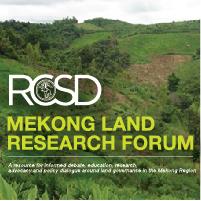Resource information
Over the past 10 years, transnational land grabs for rubber tree plantations have proliferated across Laos. Plantation concessions are being established on village lands that are represented as ‘degraded’ and legally classified as ‘state forests’, expropriated by government officials in the name of poverty alleviation with promises that plantations will provide new wage labour opportunities for those dispossessed. This contribution examines the evolution of various forms of resistance by a small, ethnic-minority Khmu community against a Chinese-owned rubber concession awarded on over half of their territory. Villagers combined different tactics of resistance to undermine the concession, including anonymous acts of sabotage, refusal to work for the company, identification of powerful allies in the government and civil society, and recourse to law and state institutions. They also appropriated the dominant state development ideology as a strategic representation to assert their territorial claims. By working within state structures rather than by open confrontation, the Khmu have stalled the establishment of the plantation on their lands. Khmu resistance to the concession evolved in response to shifting experiences of injustice and perceptions of risk and opportunity, and is one of many examples of resistance that are erupting in response to land deals across Laos.


